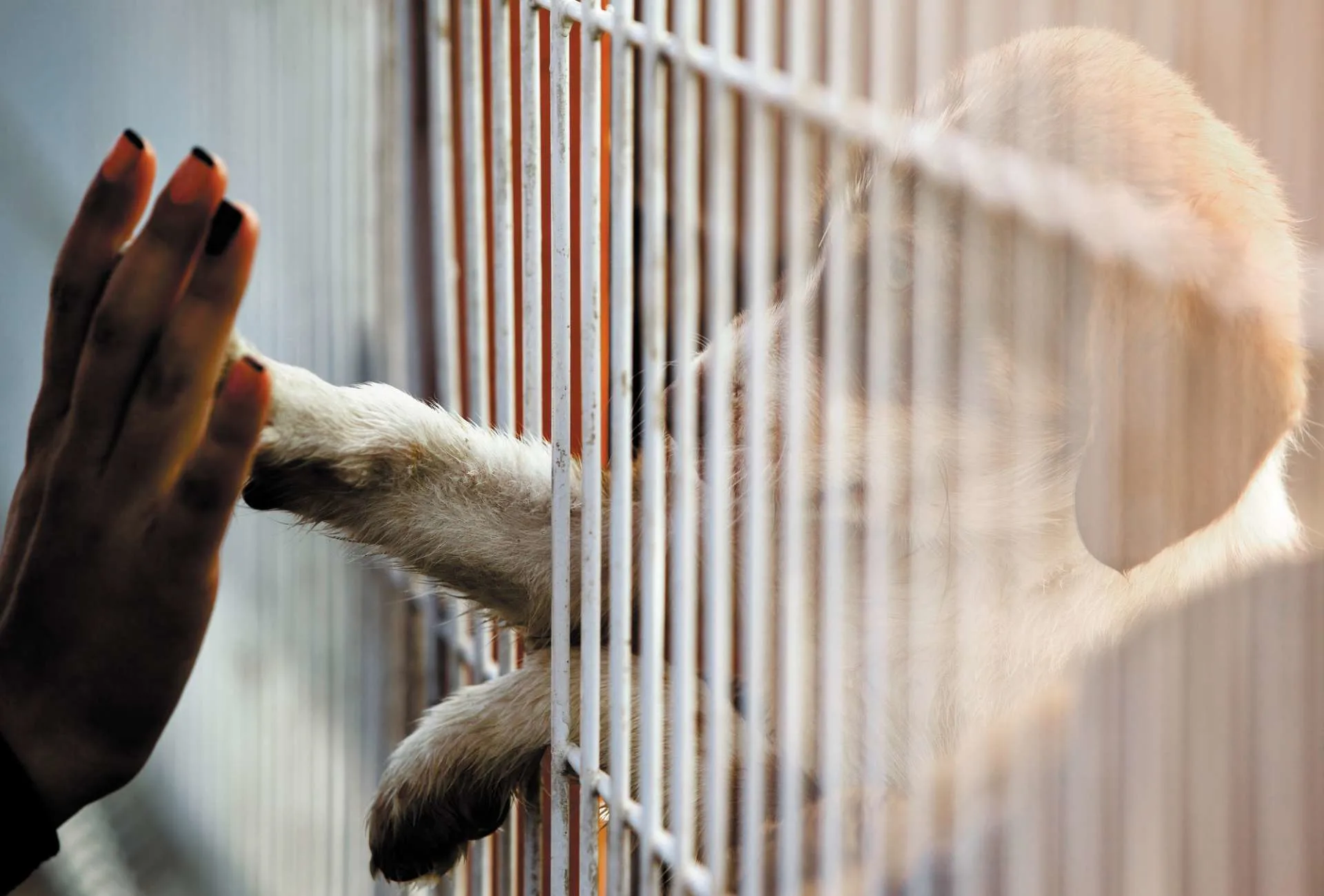Most people dislike making difficult decisions, especially when they’re based on arguably foolish decisions from our past selves.
But sometimes it’s necessary to overcome that emotional burden and that’s certainly the case when a living being’s future is on the line.
A rescue dog’s future to be specific.
What’s the truly foolish decision in this case?
It’s usually not returning the dog, it’s the decision to get the dog in the first place. There are a couple of exceptions:
- Unexpected circumstance change
- Loss of the dog’s main caretaker
- Sudden disability
- Unpredictable job loss
- Dog behavior was heavily misrepresented
Especially when it comes to the fact that a dog was misrepresented, there’s a big role shelters play in this (I’ll go into more detail below).
But many potential dog owners don’t have any excuse.
Before getting a pet, you should evaluate all the possible scenarios, dot the i’s and cross the t’s.
The second best time to do that is upon realizing that you’ve taken on more than you can handle.
I’m not advocating for hastily returning a rescue dog (that’s not advisable at all) but in case you’ve properly evaluated all the pros and cons and come to the conclusion you can’t take care of this pet, then it’s best to reduce the damage and own up to the mistake.
But why is it good you’re feeling guilt?
Well, that means you’ve hopefully weighed the pros and cons and considered the dog’s well-being.

When Returning a Dog Is Better For Them
Whether your living circumstances have changed drastically, your dog was described differently by the shelter, or you simply find you’re not qualified to care for the dog, there is a point when returning the dog is better for both of you.
Ask yourself if there is a way to keep the dog and ensure they have the best life possible.
Usually, there is a way but then you need to ask, are you honestly willing to do what it takes?
If that answer is no, your dog might be better off going back to the shelter in search of another home.
Of course, it’d be even better if you were able to find a suitable home for the dog as it beats the alternative of going back to sitting in a cage all day.
Stepping up and helping to find the perfect forever home for that dog is my #1 tip to help lessen the guilt.
The Role Shelters Play
Shelters have a huge responsibility when pairing a dog with the right human. But sometimes, resources are limited and thus it happens that dogs are misrepresented, knowingly or unknowingly.
Asking questions and spending time with the dog before bringing them home is an absolute must. But still, there are some issues that become crystal clear only as time goes on.
- Resource guarding
- Aggression towards kids or dogs
- High prey drive
- Reactivity
- Severe separation anxiety
If you did your due diligence and find out that the dog they told you was such a sweetheart has actually badly wounded another dog, bit their owner in the face, and cannot be around other dogs or kids, well then the shelter is to blame to some extent.
Shelters need to be honest about the dog’s history.
It gets a bit tricky when it comes to regular issues that the average owner should be able to expect. Shelter dogs usually don’t have a reliable recall, can’t stay alone for long, may pull strongly on the leash, etc.
Simple issues should be within the new owner’s power to fix unless they’ve specifically asked for a well-trained and easy-going beginner dog.
It gets even trickier when it comes to medical issues. Withholding or hiding a negative medical history is s no-go as it puts the new owner in an awkward spot when they’re suddenly faced with hefty vet bills and have to entertain the option of returning the dog, resulting in feelings of guilt.
On the other side, it’s expected that a shelter dog didn’t come from an ideal breeding and may have a medical history so potential owners should always have a vet emergency fund.
My 4-step process to get rid of the guilt
I have a simple process to help you get rid of that guilt in four simple steps.
- Remind yourself why you returned the dog
- Envision the optimal future for that dog and try to help shape that
- Volunteer at shelters or aim to educate others to help them avoid similar mistakes
- Learn from this
Remind yourself why you returned the dog brings clarity into the game.
Would animals, kids, or other people have been in danger had you kept the dog? Was it through no mistake of your own (i.e. the shelter told you they had no issues whatsoever)?
The goal is not to shift the blame but to remind yourself why you weren’t suitable to handle that specific dog.
Next, you can help find a new home for that dog. Ask relatives or friends with relevant experience, become that dog’s sponsor until they find a home, take some great pictures, and leave your phone number for other potential owners to ask questions about that dog.
To minimize the guilt even more, volunteering at a shelter or other programs can really help boost your mental state.
Last but not least, if mistakes have been made, avoid making them again. Do not rush getting another pup and ask yourself what needs to happen to set any next pet up for success.
Disclaimer: This blog post does not substitute veterinary attention and does not intend to do so. I am not a veterinarian or pet nutritionist. If your dog shows any sign of illness, call your vet.